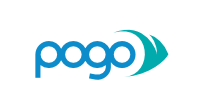Partnership for Observation of the Global Ocean (POGO) will be offering a number of shipboard fellowship opportunities onboard research vessels during 2024. This programme is designed to promote training and capacity building leading towards a global observation scheme for the ocean.
Normally, specific calls are made a minimum of six months before the cruise begins, in order to allow time for large numbers of applications to be reviewed, shortlisted candidates to be interviewed, and for the successful applicant to put the necessary paperwork in order, eg visas, travel documents, and essential medical/training certifications.
However, sometimes the POGO shipboard training programme is offered an available berth at shorter notice.
In order to make best use of these opportunities, the POGO Secretariat issues annual Open Calls for applications from early career scientists, technicians, postgraduate students (PhD or MSc) and Post-doctoral Fellows who are nationals of and involved in oceanographic work at centres in developing countries and countries with economies in transition.
The application form asks about the candidate's specific training interests, including geographical areas and research/training topics. It also asks about availability to travel during 2024. For the latter, candidates are asked to consider any dates where they may have prior commitments.
The secretariat will maintain a database of all qualified, interested candidates and, as training opportunities become available, will create shortlists by evaulating suitability for the particular project on offer.
READ CAREFULLY ALL INSTRUCTIONS ON THIS PAGE BEFORE APPLY.





